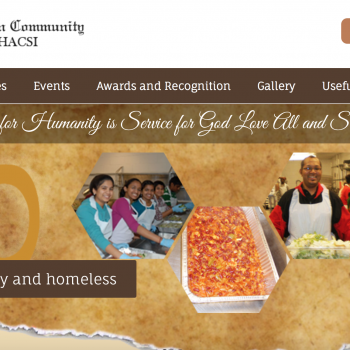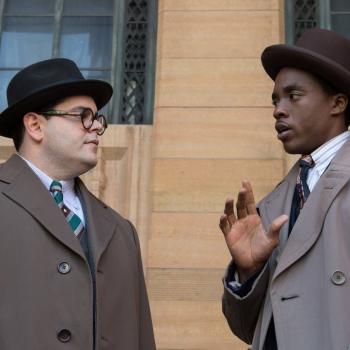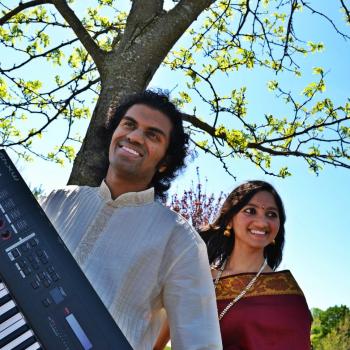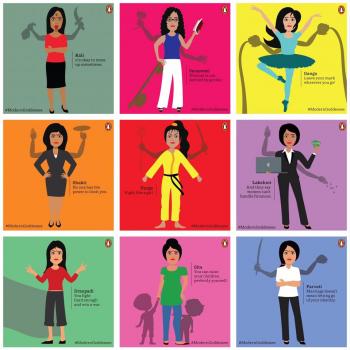Modern Woman magazine’s issue ran an article entitled “Peace on Earth,” on how interfaith families celebrate the December holiday season. In it, journalist Oona Goodin-Smith quoted me, drawing from the interview she did on my interfaith activism in metro-Detroit:
In the Hindu faith, we have a saying: ‘The truth is one, the wise call it by many names.’ I think it’s very applicable, learning more and embracing others’ truth, especially around holiday celebration.
The idea of embracing each other’s truth(s) is essential as we end the year with an election season behind us that has driven families and friends into echo chambers, or worse still, into silence. Several friends have mentioned that they skirted the topic of the election and what it means for our vision of and belief in America, in order to maintain peace at the Thanksgiving table. The holidays ahead are an opportunity to understand and engage the other, with the spirit of hospitality and love that are the underpinnings of the Christmas season. Peace is not achieved through simple silence, but by airing our differences in a civil way, and finding common ground with the other – achieving harmony in spite of our differences.
I found this ability to engage and blend diversity in the recent release of an Indian classical version of White Christmas, by the band The Fusion Project. More than a year ago, this young band of musicians in Oxford came together to make music that blends and gives voice to classical traditions and instruments of the East – Hindustani and Carnatic, tabla and bamboo flute – with modern music and instruments typically associated with the West, including guitar and violin, and a leader who sings the blues. That this group was born of interactions in the Oxford Indian Classical Arts Society was no surprise – the ancient traditions of India are rooted in pluralism, originating from this foundational belief of Hinduism: that out of many, we can be one. This ancient tradition of Hinduism has given me – and so many like me, including several of the musicians at The Fusion Project – the ability to see and hear the diversity of the world’s peoples and religions. The sounds are not at odds with one another, but brought together in harmony with an underlying melody, that respects the variety of elements that together become music – creating songs that are at once familiar and traditional, and new and different…
The Fusion Project musicians are not alone – in Cincinnati, there is a Carnatic Choir led by Dr. Kanniks Kannikeswaran, a pioneer of the Indian American choral movement, with the “ability to create captivating music easily accessible to a broad audience base, blending complex features of diverse world music forms.” While one may not be a musician, there are other ways to blend and promote pluralism through music appreciation. In the metro-Detroit area, people of all faiths and cultures gathered for a Hindustani-Carnatic concert at the Arab American National Museum. The Great Lakes Aradhana Committee, which focuses on promoting classical Indian art forms, was the coordinating force in celebrating the Hindu holiday in Diwali in Dearborn (which has a significant Muslim population and the largest mosque in the US). As our neighbors across the globe become closer, we must find ways to have more meaningful conversations with our neighbors across the street and our families across the table – because of, rather than in spite of, our varying perspectives. And just like these musicians and music aficionados, we need to come together not to create a cacophony but a symphony, where we can find common ground in spite of our differences, celebrate our own holidays, and respect and perhaps even celebrate, the holidays of the Other.
As Hindus in America, my family celebrates not only the joy of the Hindu holidays of Diwali (that recently passed) or Sankranti (to come in January), but also of this season – perhaps because the bright lights strung together remind of us of the ones hung or lit during Festival of Lights, or perhaps for a more simple reason – we like the idea of gift-giving. We may encounter commercialization and globalization of the Christmas holiday – such as malls in my parents’ hometown of Hyderabad, India, fully decked with Christmas trees, faux snow, Santa and his sleigh full of brightly wrapped presents, in an effort to hype holiday sales. But as pluralistic Hindus, we can also appreciate the spiritual aspect of the season. While Christians celebrate the birth of a savior known as the Prince of Peace, those of us who don’t see Jesus in the same way can still respect that this prophet lived through giving, and find meaning in his teachings, as Gandhi and other non-Christians have. Jesus was known for his ministering, and his ability to identify with the Other: “So that thou incline thine ear unto wisdom, and apply thine heart to understanding (KJV Proverbs 2:2).” Giving the gift of listening, even as it makes you uncomfortable, and really hearing one another, is the true spirit of pluralism. It is the gift we can give each other to start the new year on the right note, with meaningful conversations instead of silence, held amidst a backdrop of love and joy. Happy Holidays!














